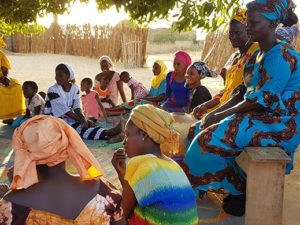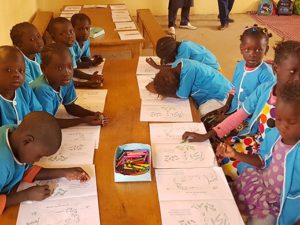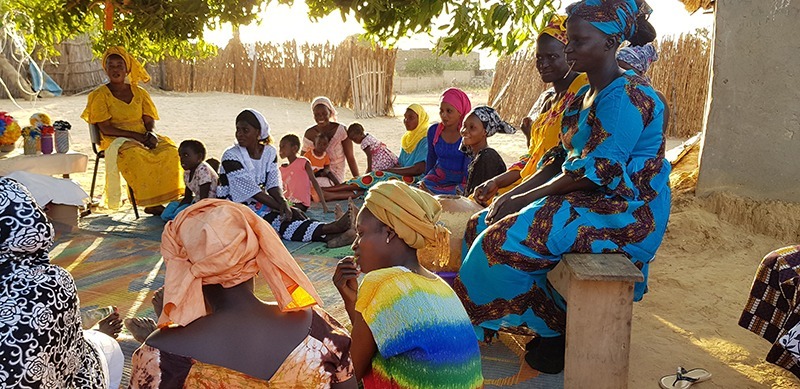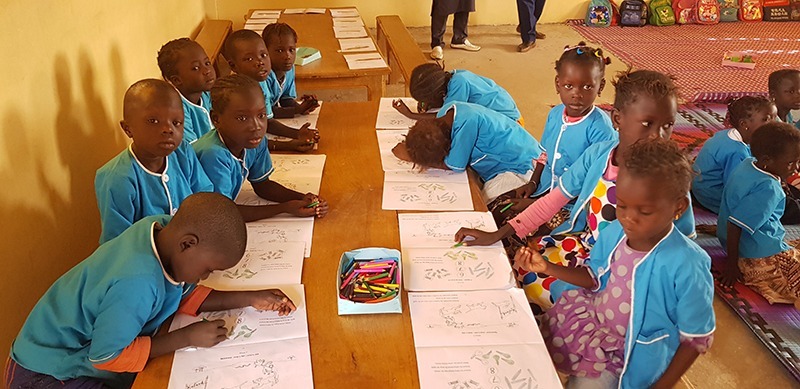
Senegal is located at the westernmost point of Africa and it has about 17.7 million inhabitants. Senegal is still one of the Least Developed Countries (LCD). Income differences are high and poverty is prominent in the countryside. Most of the small-scale farmers are women who are struggling in changing climate conditions which have made especially rains unpredictable. Approximately 80–90% of children start primary school, but many drop out early. Children who drop out of school start working at a very young age, helping their families especially in farming, animal husbandry, and fishing. In Senegal, 38 languages are spoken country-wide.
Implementing partner: Église Luthérienne du Sénégal (Lutheran Church of Senegal)
Project description
In Senegal, all primary education is given in French, which is not a native language to most children starting school. The project advances the rights of ethnic and language minorities as well as women, and elevates the status of local languages in early education in Senegal. It also advocates for possibilities for children to study in their own mother tongue. Through the project activities, learning results in primary schools improve when children participate in early education in their own mother tongue before starting primary school. The project also organises literacy classes for women to improve their possibilities of participating in society and to increase their income generating possibilities.
The project development goal
Learning results improve with mother tongue program, including children at preschools and women in literacy classes. Women’s livelihood and participation in decision making improve. Production of teaching materials and litterature in local languages rise the appreciation of national languages and support the literacy work. Advocacy work stregthen the approache of school program in mother tongue.
Examples of key activities
- Pre-school program in sereer
- Teachers’ training
- Producing teaching materials, literature
- Dictionary in sereer in collaboration with the university of Dakar
- Literacy classes for women in pulaar
- Advocacy for official school programs in mother tongue
Implementing partner: Église Luthérienne du Sénégal (Lutheran Church of Senegal)
Project description
In Senegal, climate change is a serious threat, with reduced rainfall, heavy rainfall and short duration of rainfall, as well as an increase in average temperature. There are numerous negative consequences of climate change: coastal erosion, desertification, reduced mangrove forests and agricultural and pasture land, reduced access to water drinking irrigation, and reduced food security. In addition to this, vulnerable groups such as persons with disabilities and women face various barriers and constraints in access to basic social services and land ownership.
The project development goal
The aim of the project is to improve the living conditions of people in the Foundiougne region by increasing the ability to influence and resilience of vulnerable groups based on a legal approach.
Examples of key activities
- We strengthen the adaptability of the population in the Foundiougne region, particularly with regard to marginal groups of people such as women, children and people with disabilities.
- We are increasing the opportunities for influence and livelihoods for vulnerable groups.
- We educate about increasing the productivity of home gardens.
- We will improve the realization of fundamental rights.
- We will strengthen the availability of fresh water.




